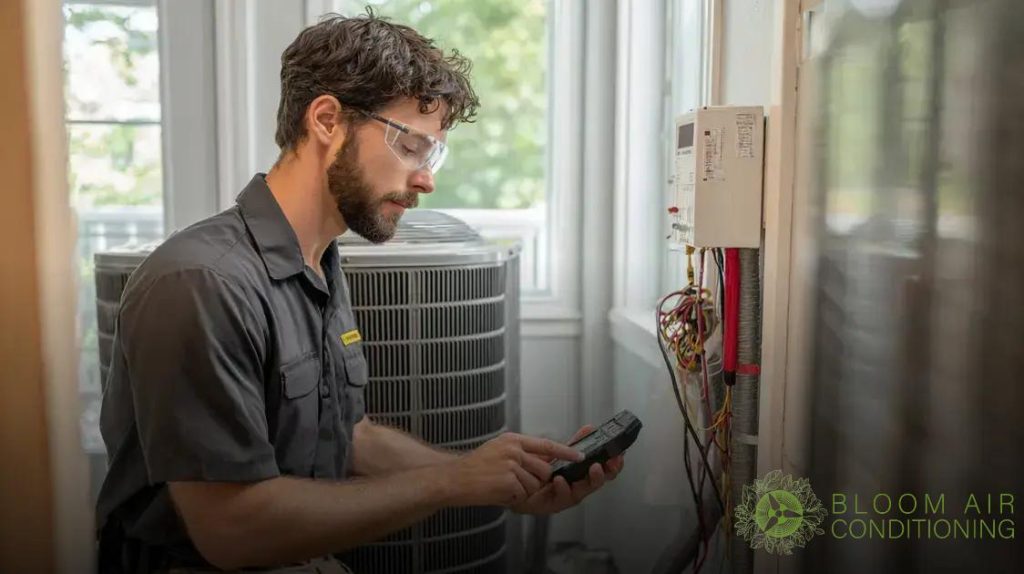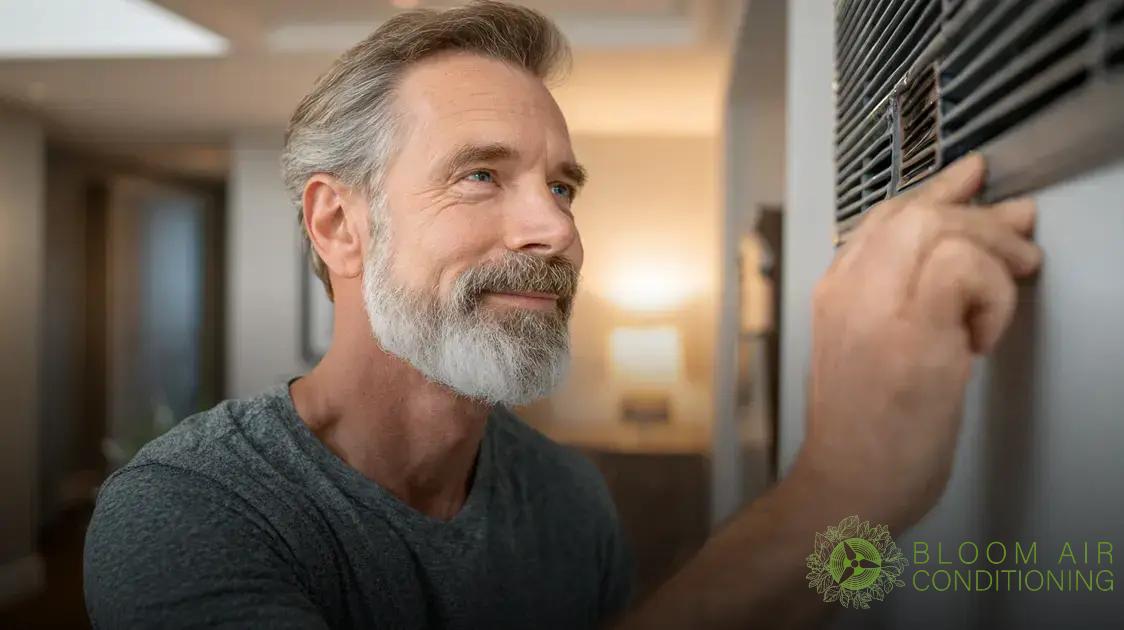DIY HVAC Troubleshooting Tips: Expert Advice for Homeowners
Estimated Reading Time: 5 minutes
- Understand the basics of your HVAC system to troubleshoot effectively.
- Regular maintenance can prevent costly repairs.
- Know when to call a professional for safety and efficiency.
- Keep your HVAC unit clean for optimal performance.
- Stay informed about energy efficiency tips and maintenance strategies.
Table of Contents
- Understanding Your HVAC System
- Step-by-Step Troubleshooting Guide
- When to Call a Professional
- Risks and Warnings
- Practical Takeaways
- Conclusion
- FAQ
Understanding Your HVAC System
Before we jump into troubleshooting, it’s essential to have a basic understanding of how your HVAC system operates. An HVAC system is a complex setup that includes heating, cooling, and ventilation components. Ensuring all parts function correctly can keep your home comfortable year-round. Here are some common issues that may arise with HVAC systems:
- The system doesn’t turn on.
- Inconsistent heating or cooling.
- Strange noises or odors.
- High energy bills.
By following a systematic approach, homeowners can often pinpoint the issue without the need for costly repairs. Below, we outline key troubleshooting steps you can take.
Step-by-Step Troubleshooting Guide
1. Check Power Supply
First, ensure your HVAC system is receiving power. Check the circuit breaker and see if any switches near the indoor or outdoor units have been turned off. Be sure to examine GFCI outlets and fuses, too. If you find a tripped breaker, reset it. If a fuse is blown, replace it only if you are comfortable doing so; if not, contact a professional HVAC technician. Having a reliable power source is vital for the system’s operation.
2. Inspect the Thermostat
The thermostat is the brain of your HVAC system. Check that it’s set to the desired mode—whether you’re heating or cooling—and that the temperature is set correctly. If it’s battery-operated, ensure the batteries are functional. You can also consider recalibrating or resetting the thermostat according to the manufacturer’s instructions. If you find older models challenging, upgrading to a programmable thermostat can enhance your system’s efficiency.
3. Replace or Clean Air Filters
One of the simplest ways to maintain HVAC performance is by regularly checking and changing air filters. Dirty or clogged filters can restrict airflow, leading to overheating or freezing of the system. Industry professionals recommend inspecting air filters monthly and replacing or cleaning them every 1 to 3 months. By maintaining clean filters, you not only improve efficiency but also extend the lifespan of your HVAC unit.
4. Clear Vents, Registers, and Ductwork
Inspect your home for any blocked vents and registers. Furniture, curtains, and dust can obstruct airflow, causing your system to work harder than necessary. Use a vacuum or an air vent cleaner to remove any dust buildup from vents. This simple step ensures improved air quality and energy efficiency.
5. Check the Outdoor Unit
For central air systems, keep the outdoor condenser unit free from leaves, grass, and other debris. Over time, dirt and vegetation can accumulate, hindering your unit’s performance. Using a garden hose can help clean away any debris without damaging the unit. Regular maintenance of outdoor components is crucial for optimizing system efficiency.
6. Investigate Unusual Sounds or Odors
Pay attention to any unusual noises such as squealing, grinding, or rattling. These sounds can indicate mechanical or electrical issues that require professional assessment. Similarly, unpleasant odors—such as burning, chemical, or gas scents—should never be ignored, as they can signify potentially hazardous situations.
7. Test for Refrigerant Leaks and Ice Buildup
If you notice reduced cooling performance, or if there’s visible ice on the coils, you might have a refrigerant leak or low refrigerant levels. This issue needs immediate professional attention. Handling refrigerant can be hazardous and may also violate local regulations if not conducted by a certified professional. Therefore, always err on the side of caution.
8. Evaluate Pilot Light or Ignition Issues (Gas Furnaces)
If you have a gas furnace, check the pilot light. If it’s out or flickering, relight it only if you’re trained. If you’re unsure, it’s best to call in a technician, especially if you detect any gas smell. Safety should always be your top priority.
When to Call a Professional
While many common HVAC issues can be addressed with simple troubleshooting steps, there are situations that warrant a call to a professional:
- Persistent system failures after performing basic troubleshooting checks.
- Electrical issues such as sparks, burning smells, or frequent breaker trips.
- Refrigerant or gas leaks.
- Continued unusual noises even after thorough vent and filter checks.
- The system’s performance does not improve after thermostat and filter adjustments.
Attempting to conduct complex repairs without adequate knowledge can void warranties and pose safety risks. When in doubt, consulting an HVAC professional is always the smarter choice.
Risks and Warnings
As homeowners take on DIY tasks, it’s crucial to understand the limitations. Professionals caution against attempting complex repairs with HVAC systems. Unqualified work can lead to equipment damage, safety hazards, and legal implications based on local codes. Simple DIY approaches are great, but anything more complex should be left to professionals who know what they’re doing.
Practical Takeaways
- Scheduling Regular Maintenance: Schedule annual inspections for your HVAC system to catch minor issues before they become major problems. This can save you from costly repairs in the long run.
- Energy-Efficiency Tips: Improve your energy efficiency by regularly changing filters, clearing obstructions from vents and outdoor units, and sealing any drafts in your home.
- Educate Yourself: Familiarize yourself with your HVAC system. Understanding how it works and common issues can empower you to address minor problems confidently.
- Cardinal Rule: Always err on the side of caution—if you are uncertain about a problem or potential repair, do not hesitate to consult with a certified technician.
Conclusion
By equipping yourself with the knowledge to troubleshoot your HVAC system, you can take proactive steps that not only enhance your comfort but can also save you time and money. Remember, while simple DIY measures can be taken, do not hesitate to reach out for professional help when necessary. For HVAC services that ensure your system runs smoothly and efficiently, contact us at Bloom Air Conditioning.
Call to Action: If you’re facing issues with your HVAC system or simply want to optimize its performance, reach out to us at Bloom Air Conditioning. Our team of experts is ready to assist you with all your HVAC needs, ensuring your home stays comfortable year-round. Don’t hesitate to explore our services for a reliable solution!
FAQ
Q: How often should I clean or replace my HVAC filters?
A: It is recommended to inspect filters monthly and replace or clean them every 1 to 3 months to maintain optimal airflow and efficiency.
Q: What should I do if my HVAC system is making loud noises?
A: Unusual noises can indicate underlying mechanical issues. It’s advisable to consult a professional to avoid further damage.
Q: When should I consider upgrading my thermostat?
A: If your thermostat is old or not functioning properly, upgrading to a programmable thermostat can help improve your system’s efficiency.
Q: Are there any safety concerns I should be aware of?
A: Yes, always be cautious with gas systems, check for gas leaks, and avoid attempting repairs that require specialized knowledge.
Q: How can I improve my HVAC system’s energy efficiency?
A: Regular maintenance, changing filters, keeping the system clean, and ensuring proper insulation in your home can significantly improve energy efficiency.


